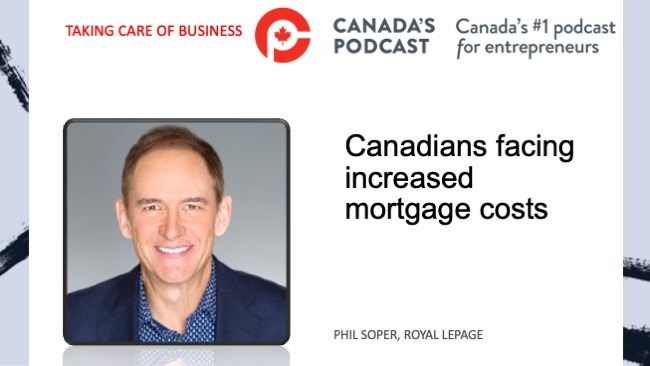In an interview with Canada’s Podcast, economist, author, and speaker Todd Hirsch discussed the looming impact of tariffs between Canada and the United States, explaining the economics behind tariffs and how they could affect both countries.
Hirsch clarified that a tariff is essentially a tax applied to citizens or businesses in the country imposing it when they import goods. This means that tariffs are paid by the citizens of the country levying the tax, not the country from which the goods are imported. “When President Trump talks about imposing tariffs on Canada or China, he’s not saying those countries will pay. It’s the businesses and citizens of the country imposing the tariff who bear the cost,” explained Hirsch.
When asked why governments impose tariffs, Hirsch provided historical context. “Tariffs were popular in the early 20th century to protect domestic industries. The thinking at the time was that tariffs would make foreign goods more expensive, giving local industries a competitive edge,” Hirsch said. He noted that while tariffs were commonly used for most of the 20th century, they fell out of favor during the era of trade liberalization, marked by agreements like NAFTA. However, recent years have seen a resurgence in tariff discussions.
Turning to the current situation, Hirsch outlined the severe economic impact tariffs could have on both Canada and the U.S. If President Trump’s proposed tariffs are implemented, a 25% tariff on Canadian exports to the U.S. and a 10% tariff on Canadian oil and gas would significantly harm Canada’s economy. Hirsch referenced estimates by other economists, including those from the Bank of Canada, which suggest such tariffs could reduce Canada’s GDP by 2-6%, possibly pushing the country into a recession.
On the U.S. side, Hirsch explained that tariffs would harm American consumers. “U.S. businesses that import Canadian goods like lumber, oil, and auto parts would face higher costs. These businesses would either have to find alternatives, which would likely be more expensive, or pass the higher costs on to consumers,” Hirsch stated. He emphasized that the tariffs would directly contradict President Trump’s campaign promise to lower prices for U.S. consumers.
25% is exceptionally high for a tariff
Addressing the question of whether a 25% tariff is exceptionally high, Hirsch responded, “Yes, it is historically high. Even a 10% tariff would be considered extreme. A 25% tariff between Canada and the U.S. would be unprecedented since before World War II.”
With the tariff deadline fast approaching on March 1, Hirsch highlighted the need for Canada to prepare. “Canada has 30 days to figure out a response. Politicians are meeting daily to discuss what action to take, and businesses need to explore alternatives. Can we find other markets or buy more Canadian products?” Hirsch said. He also noted that Canada’s political response seems geared toward retaliation, with plans to impose tariffs on specific U.S. commodities if the U.S. follows through with their tariffs.
The impact on Canada/China trade relationships
Hirsch also addressed the broader global context of trade tensions, particularly the U.S.-China trade war. “Canada finds itself in a difficult position, especially with China. If China retaliates by buying more from Canada, it could anger the U.S. even further. Canada competes with the U.S. for many of the same products that China imports, such as oil and food, which could complicate things even more,” Hirsch explained.
Finally, Hirsch shared his thoughts on what he called the “end of economics,” referring to the departure from traditional economic principles. “Economics used to be guided by concepts like comparative advantage and supply and demand. But in recent years, we’ve seen policies that seem to ignore or contradict these basic principles. Politicians around the world, not just in the U.S., are pulling economic levers that fly in the face of these fundamental ideas,” Hirsch said. He expressed hope that new economic models may emerge in the future, but for now, many fundamental concepts seem to be ignored.
In closing, Hirsch’s insights into the current economic climate highlight the potential consequences of tariffs and the uncertainty facing both Canada and the U.S. in the coming months.

Mario Toneguzzi
Mario Toneguzzi is Managing Editor of Canada’s Podcast. He has more than 40 years of experience as a daily newspaper writer, columnist, and editor. He was named in 2021 and 2024 as one of the top business journalists in the world by PR News. He was also named by RETHINK to its global list of Top Retail Experts 2024 and 2025.
About Us
Canada’s Podcast is the number one podcast in Canada for entrepreneurs and business owners. Established in 2016, the podcast network has interviewed over 600 Canadian entrepreneurs from coast-to-coast.
With hosts in each province, entrepreneurs have a local and national format to tell their stories, talk about their journey and provide inspiration for anyone starting their entrepreneurial journey and well- established founders.
The commitment to a grass roots approach has built a loyal audience on all our social channels and YouTube – 500,000+ lifetime YouTube views, 200,000 + audio downloads, 35,000 + average monthly social impressions, 10,000 + engaged social followers and 35,000 newsletter subscribers. Canada’s Podcast is proud to provide a local, national and international presence for Canadian entrepreneurs to build their brand and tell their story.





